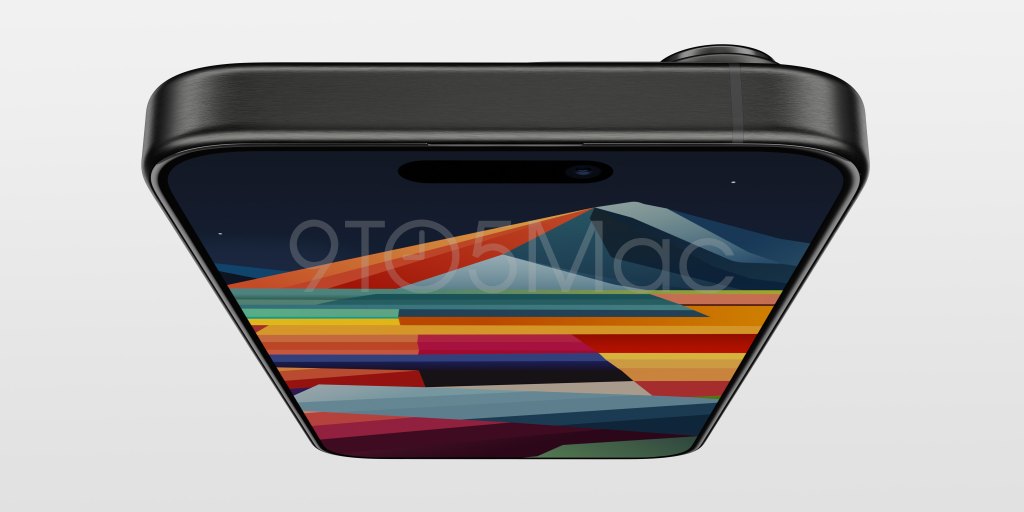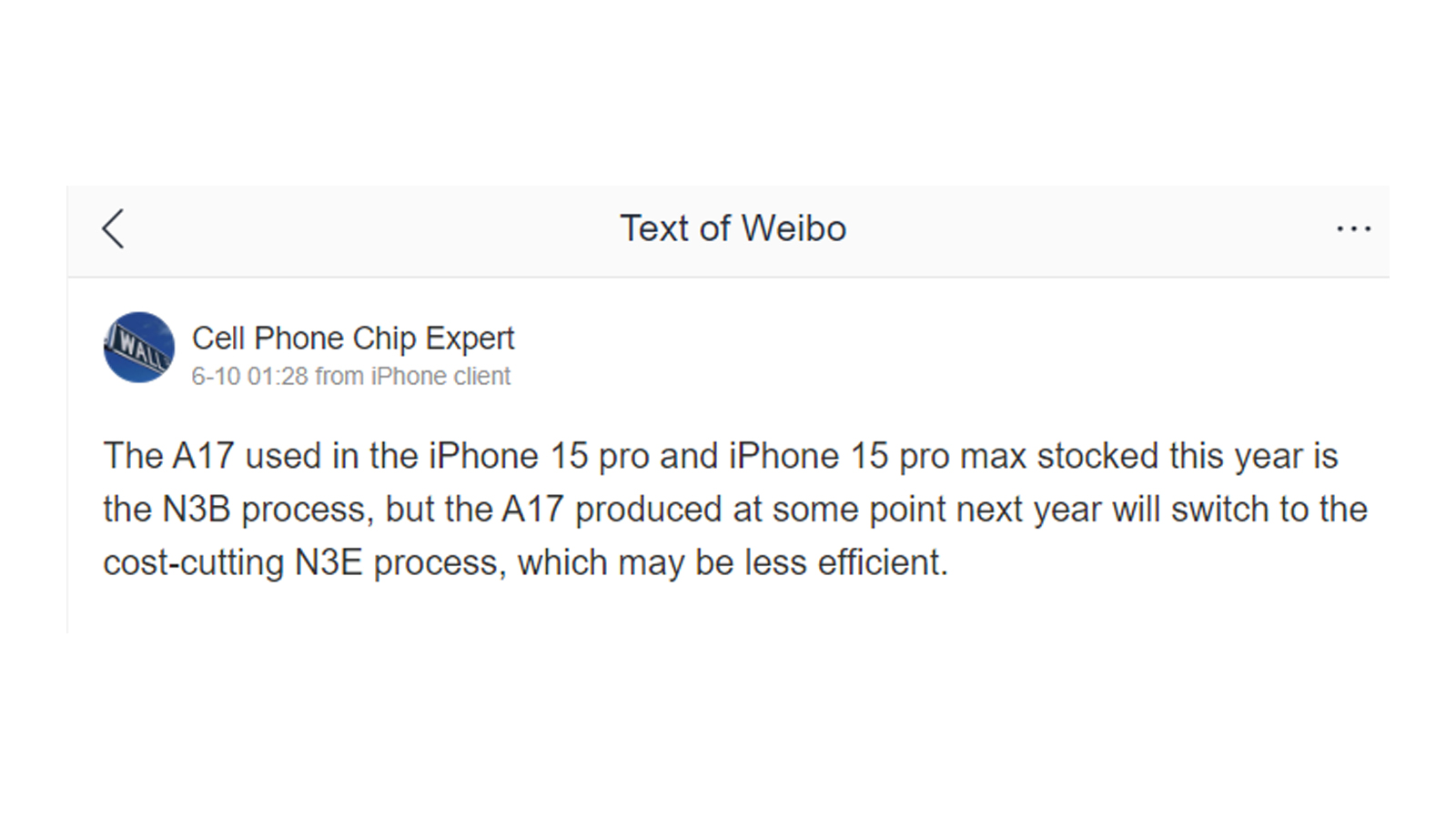Sketchy iPhone 15 Pro A17 Bionic rumor says Apple is going to swap chips
iPhone 15 Pro could get a strange hardware update next year

Tips for the iPhone 15 Pro and iPhone 15 Pro Max say they are both in line for an advanced new type of chipset to power them. But while this silicon should have the same A17 Bionic name throughout the phone's life, there could be two different versions.
Cell Phone Chip expert, a previously unknown leaker from Weibo, asserts that at some point next year TSMC will use a different 3nm process to build the iPhone chips. After producing early units with its original N3B process, later models made in 2024 will allegedly be made with the newer and cheaper N3E process.

3nm chips are the smallest and potentially most powerful sort available to device makers today. But they're also expensive to make and buy, so it wouldn't be surprising for Apple and TSMC to make a savings where they can on these chips.
However, the Weibo leaker also makes the strange claim that "the performance may be worse" on iPhone 15 Pro models with the N3E chips. This is an especially confusing assertion since, as Wccftech notes, the newer process claims to offer 32% less energy consumption and 15% greater performance than the older one.
Either way, this shouldn't be a problem for the iPhone 15 or iPhone 15 Plus. These models will likely use Apple's current A16 Bionic chip from the iPhone 14 Pro and iPhone 14 Pro Max, like how the iPhone 14 and iPhone 14 Plus use a version of the A15 Bionic processor that originally debuted in the iPhone 13 series.
What would this mean for iPhone buyers?
There's no need to commit to buying or not buying the iPhone 15 Pro at launch or next year just yet. We're only dealing with rumors for now, and a very strange, sketchy one at that. And even when the iPhone 15 series is announced, we can't imagine Apple would openly promote TSMC swapping manufacturing methods if it did, giving us a good indication of when to start or stop buying the iPhone.
Taking the non-disputed cost part of the rumor into account, it could mean that the expected price increase for the iPhone 15 Pro series won't be quite as steep as feared. If Apple can rely on later iPhone 15 units being cheaper to produce, then perhaps it'll be able to keep the MSRP lower.
Get instant access to breaking news, the hottest reviews, great deals and helpful tips.
If the later iPhone 15 Pro models are going to be less powerful (though this is already disputed), then that probably still doesn't change things for buyers. iPhone chips are already plenty powerful, so assuming the drop is only marginal, then you have no reason to worry about the new iPhone being able to handle demanding apps and games. It's not worth trying to join the pre-order/launch sale rush just to get a model that could score a little better on benchmarking apps, unless you're convinced you need all the power Apple can give you in a new phone.
As with all rumors, we'll have to wait and see what Apple confirms at the Apple September event. While we're watching, we'll also be hoping to confirm other rumored features like the iPhone 15 Pro Max's new periscope camera and USB-C ports on all iPhone 15 models.
More from Tom's Guide
- Your iPhone lock button is hiding a secret feature — turn it on now
- Exclusive: Apple spills secrets on new MacBook Air 15-inch
- Apple Vision Pro virtual keyboard is visually stunning — here’s how it looks

Richard is based in London, covering news, reviews and how-tos for phones, tablets, gaming, and whatever else people need advice on. Following on from his MA in Magazine Journalism at the University of Sheffield, he's also written for WIRED U.K., The Register and Creative Bloq. When not at work, he's likely thinking about how to brew the perfect cup of specialty coffee.
 Club Benefits
Club Benefits





